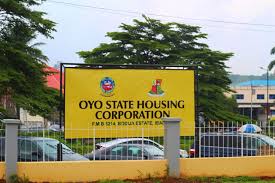Tinath Realties & Investments Limited has made significant strides in collaboration with the Oyo State Housing Corporation to deliver a total of 343 environmentally sustainable buildings in Ibadan. This initiative is part of a broader housing development plan that aims to provide 2,000 housing units as a solution to the increasing demand for affordable living spaces in the region. The housing units, which will include three different types of apartments and duplexes, are designed to reflect modern ecological standards, aligning with international green building specifications set forth by the International Finance Corporation (IFC). The project, with an estimated budget of N8.5 billion, focuses on creating a sustainable living environment, highlighting the importance of eco-friendly construction in contemporary urban development.
Alongside the residential component, Tinath Realties is also working on a commercial complex, the Olubadan Ultramodern Shopping Mall, strategically located opposite the Bola Ige International Market. This two-story building will consist of 240 retail units, each measuring 30 square meters, in addition to facilities such as an ATM gallery, food court, bar, and a fire station. The estimated budget for this commercial project is N2.4 billion, with an expected completion timeline of just 12 months. This initiative emphasizes the multifaceted approach of Tinath Realties to urban development by integrating commercial and recreational spaces within the urban infrastructure to enhance the overall living experience for residents.
Designed under an innovative financing structure termed EPC+F (Engineering, Procurement, Construction, and Financing), both projects aim to be delivered within the same timeframe of one year. This financing model allows for efficient resource management and a streamlined process that aids in meeting the project deadlines. The collaboration with the Oyo State Housing Corporation showcases a commitment to both public and private sector partnership in advancing housing solutions that cater to the needs of the local community. Such collaborations are critical in addressing the housing deficit and enhancing urban living standards in Nigeria.
The environmentally friendly ambitions of the Tinath Realties project are backed up by substantial projections concerning carbon footprint reduction. The IFC Edge Green Building certification foresees impressive annual CO2 savings of 972.21 tonnes, with a long-term savings estimate of 68,054.7 tonnes over a 70-year lifespan. This aligns with global efforts to reduce greenhouse gas emissions and combat climate change, positioning the Oyo State housing development as a forward-thinking initiative that prioritizes sustainability in its architectural and planning practices. It also reinforces the role of real estate developers as pivotal players in the wider conversation about environmental responsibility.
Kola Abimbola, the Chief Executive Officer of Tinath Realties & Investments Limited, has articulated that the success in previous developments, notably in the Oyo State Government Reservation Area (GRA) in Saki, has set a strong precedent for the firm. This track record of performance distinguishes Tinath from other developers and showcases the company’s capabilities to navigate complex bidding processes and securely manage large-scale projects. The firm’s experience and demonstrated proficiency are instrumental in establishing trust with governmental bodies and stakeholders, ensuring the projects align with both the regulatory framework and community needs.
In summary, the ongoing projects by Tinath Realties & Investments Limited in partnership with the Oyo State Housing Corporation represent a significant advancement in the urban landscape of Ibadan. With a commitment to sustainability and innovation in the housing sector, the development of 343 green buildings and the Olubadan Ultramodern Shopping Mall illustrates an integrated approach to residential and commercial real estate. As these projects unfold, they promise to contribute positively to local infrastructure, create jobs, and enhance the quality of life for residents while addressing pressing environmental concerns. The combined impact of fulfilling housing needs while promoting ecological sustainability serves as a model for future developments in Nigeria and beyond.


